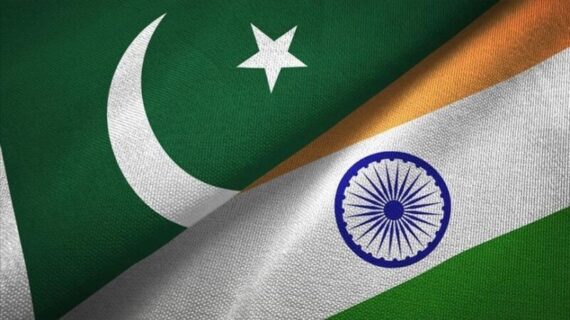Relations between India and Pakistan—long shaped by historical rivalries and persistent conflict—are now teetering on the brink of a fresh crisis. On April 22, 2025, a deadly terrorist attack in the Baisaran Valley near Pahalgam, in Indian-administered Jammu and Kashmir, claimed the lives of 26 civilians. The attack, the deadliest since the 2008 Mumbai attacks, has reignited debate across India over long-standing issues such as the Kashmir conflict, cross-border terrorism, and nuclear brinkmanship.
Claimed by the Resistance Front (TRF), a group that emerged in 2019 in response to India’s Kashmir policies, the attack has once again placed Pakistan-India relations at the center of global scrutiny. India swiftly blamed Pakistan, accusing it of supporting cross-border terrorism. Pakistan, in turn, denied involvement and called for an international, independent investigation.
India’s reaction was multifaceted—diplomatic, economic, and strategic. Most notably, it announced the suspension of the 1960 Indus Waters Treaty, signed under World Bank auspices, and revoked visas issued to Pakistani nationals. Furthermore, India imposed a complete ban on imports from Pakistan, effectively freezing what little bilateral trade remained.
Pakistan, while rejecting the terrorism allegations, emphasized the need for a transparent, international investigation and urged global institutions to intervene. In response to India’s sanctions, Islamabad implemented symbolic countermeasures and declared its intention to suspend all bilateral agreements with India, including the 1971 Simla Agreement, which has long shaped India-Pakistan diplomacy.
Historical Echoes in a Modern Crisis
This latest round of hostilities bears the unmistakable imprint of history. The Kashmir dispute remains the epicenter of tensions, echoing the unresolved legacies of partition. Pakistan continues to advocate for Kashmir’s right to self-determination and insists the conflict is international in nature. India, however, treats Kashmir as a purely internal issue and frames all discourse about it as a matter of national security.
India’s strategy of blaming Pakistan for every major incident in Kashmir reinforces its longstanding narrative: Pakistan as a state sponsor of terrorism. This pattern—repeating in 2001, 2008, 2019, and now 2025—illustrates the historical continuity of arguments used by both sides. However, what sets this crisis apart is the mutual suspension of two foundational agreements: the Indus Waters Treaty and the Simla Agreement.
These developments raise the specter of renewed disputes over vital issues such as water resource sharing, the status of the Line of Control (LoC), and the internationalization of the Kashmir issue—topics that had, until now, been largely settled or frozen.
The Root Cause: Kashmir
The ideological and structural tensions between India and Pakistan have persisted since the 1947 Partition. Central to this divide are identity-based narratives and the Kashmir question. Pakistan’s founding ideology—the Two-Nation Theory—underpins its position. In the wake of the April 2025 attack, Pakistan’s National Security Committee cited the incident as further validation of the Two-Nation Theory’s relevance.
For both nations, Kashmir represents more than just territory—it is an existential concern. This has led to multiple wars (1947, 1965, 1971, 1999) and numerous skirmishes. Since the 2000s, the discourse has evolved to focus on terrorism and counterterrorism, with India accusing Pakistan of supporting armed insurgents in Kashmir.
Key turning points like the 2001 Parliament attack, the 2008 Mumbai attacks, and the 2019 Pulwama bombing have hardened India’s stance. Pakistan, meanwhile, maintains it merely supports Kashmiris’ right to self-determination.
India’s 2019 decision to revoke Article 370 of its Constitution—which had granted special autonomy to Jammu and Kashmir—further inflamed tensions. This move not only altered the region’s demographic dynamics but also underlined India’s insistence that the issue lies solely within its sovereign purview. However, this unilateral action has fueled demands for legal reforms and reignited grievances among the region’s Muslim-majority population.
Diplomatic Bridges in Limbo: Indus Waters and Simla Agreements
The fact that two nuclear powers are once again clashing over Kashmir raises urgent questions about regional stability. This time, the stakes are higher. India’s suspension of the Indus Waters Treaty, originally signed in 1960, could have far-reaching consequences.
The treaty allocated usage rights of eastern rivers (Ravi, Beas, Sutlej) to India and western rivers (Indus, Jhelum, Chenab) to Pakistan. As over 80% of Pakistan’s water supply relies on these western rivers, the treaty has been a lifeline for its agricultural economy and energy needs. As the upper riparian, India had been constrained from using water as a strategic weapon—until now.
Pakistan has warned that India’s withdrawal could be considered an act of war, underlining the treaty’s significance for its national security and food sovereignty.
In response, Pakistan has announced it will suspend the Simla Agreement 1971, which committed both countries to resolve all disputes bilaterally and peacefully. The Simla Agreement effectively prevented third-party intervention in Kashmir, favoring direct dialogue. India has historically used it to avoid internationalizing the Kashmir issue, while Pakistan has seen it as a path to maintain diplomatic engagement and avoid military escalation.
Another vital clause in the Simla Agreement defines the Line of Control (LoC), the de facto border in Kashmir. Though repeatedly violated, the LoC remains a critical buffer. Suspending the agreement may open new disputes about the legitimacy and control of this volatile frontier.
Recommended
A Crisis Beyond Borders
The India-Pakistan conflict continues to be shaped by long-standing identity-based divisions and unresolved historical grievances. The April 2025 terrorist attack has not only reignited old hostilities but introduced new risks by dismantling key diplomatic safeguards.
With the Indus Waters Treaty and Simla Agreement effectively suspended, the crisis risks spilling into broader domains: water security, cross-border diplomacy, and international law. The specter of weaponized water and the disappearance of a legal framework governing the LoC make this moment particularly dangerous.
India’s emphasis on internal security and Pakistan’s push for internationalization reflect deeply rooted policy approaches. This confrontation, therefore, can be read as an updated version of a recurring pattern—but with higher stakes.
Given both nations’ nuclear capabilities, the ramifications of continued escalation are not just regional, but potentially global. As we advance, international actors and diplomatic channels must intervene and de-escalate tensions. Otherwise, the collapse of foundational agreements could open the door to unpredictable and potentially catastrophic outcomes—not just for India and Pakistan, but for all of South Asia.

VIDEO: How dangerous is the latest India-Pakistan dispute?





